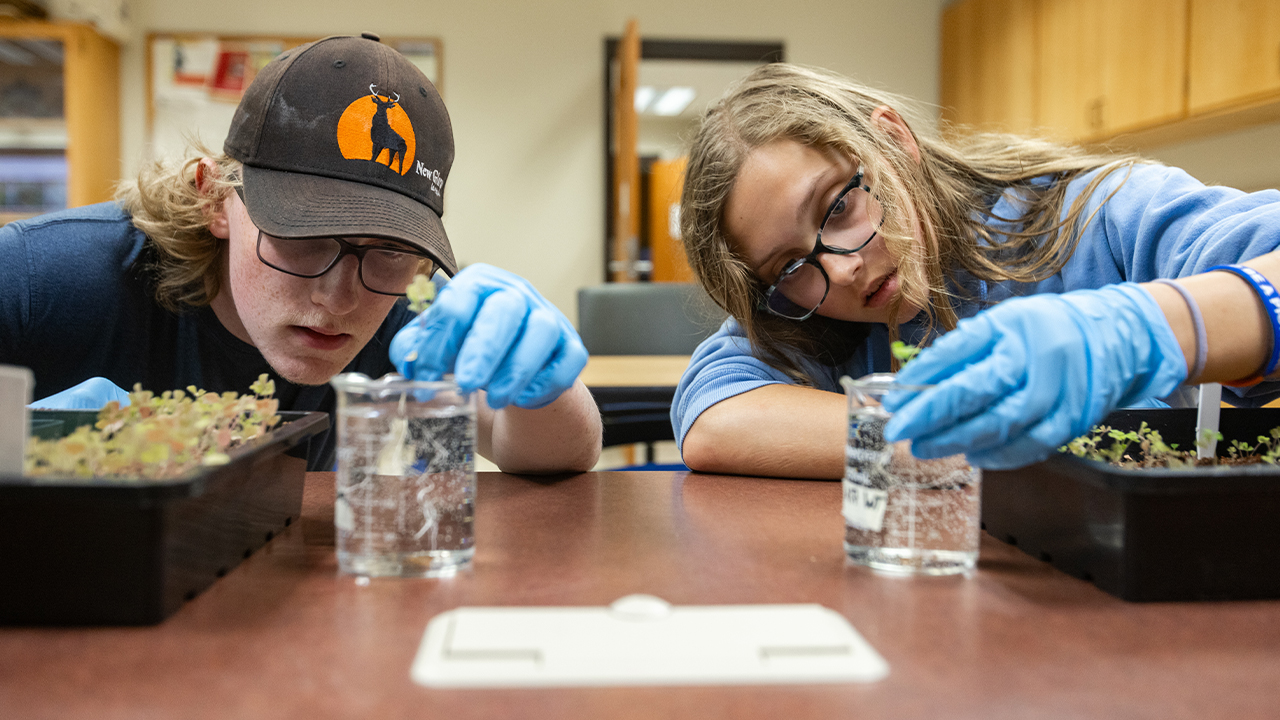
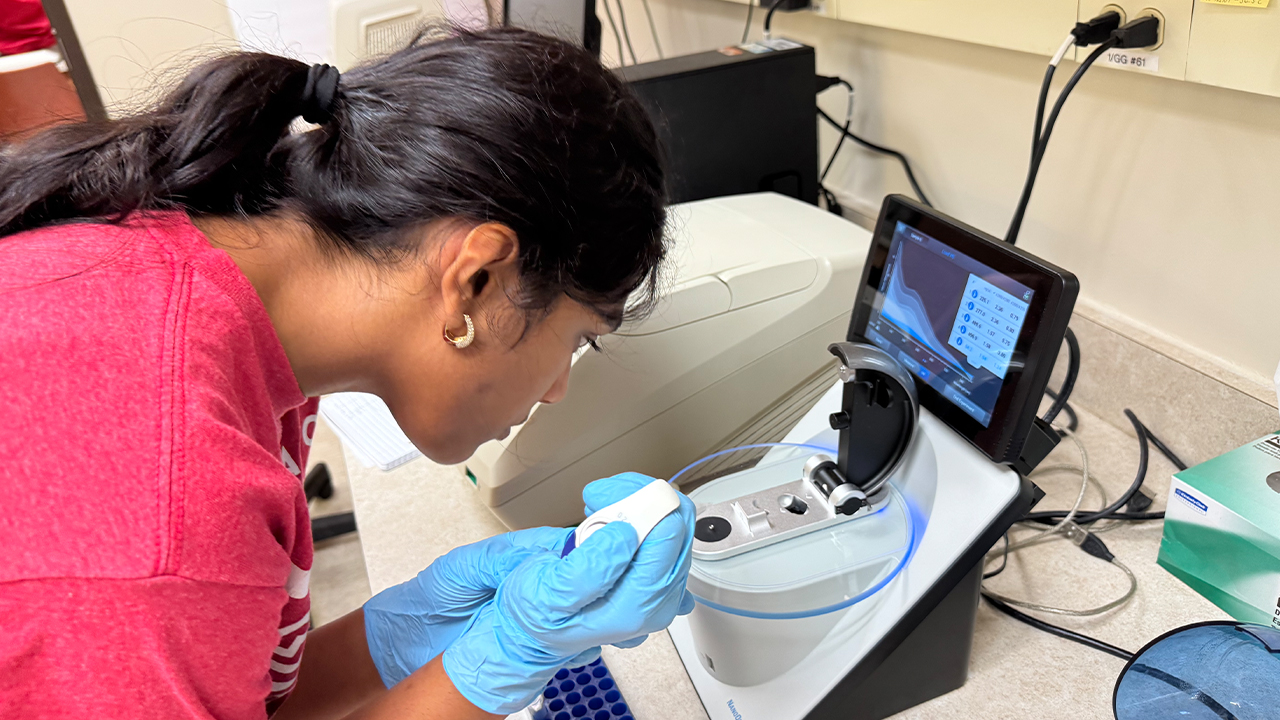
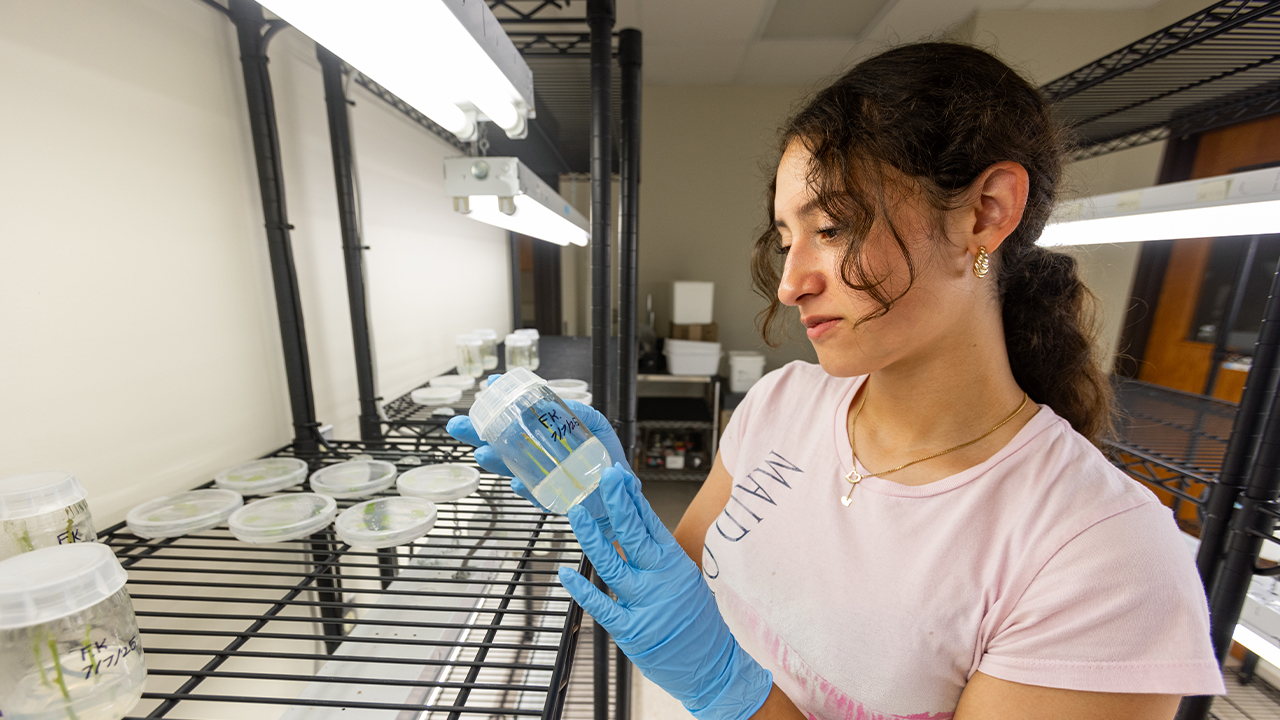
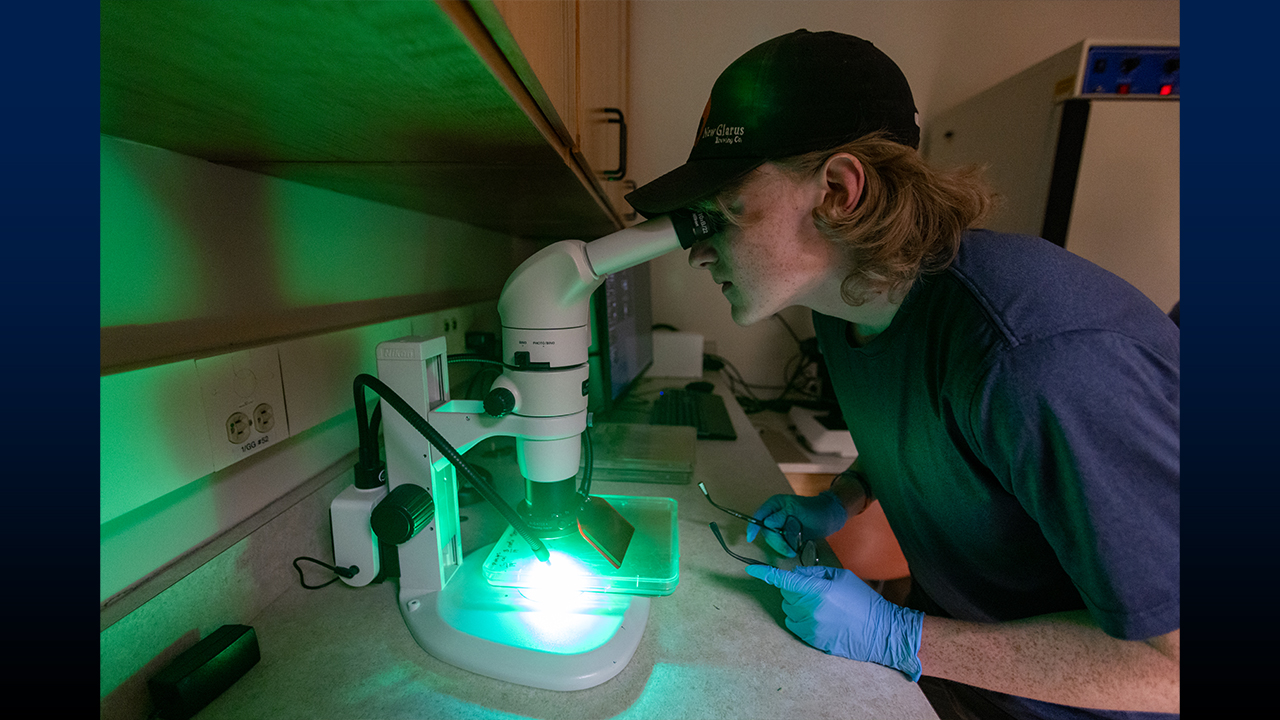
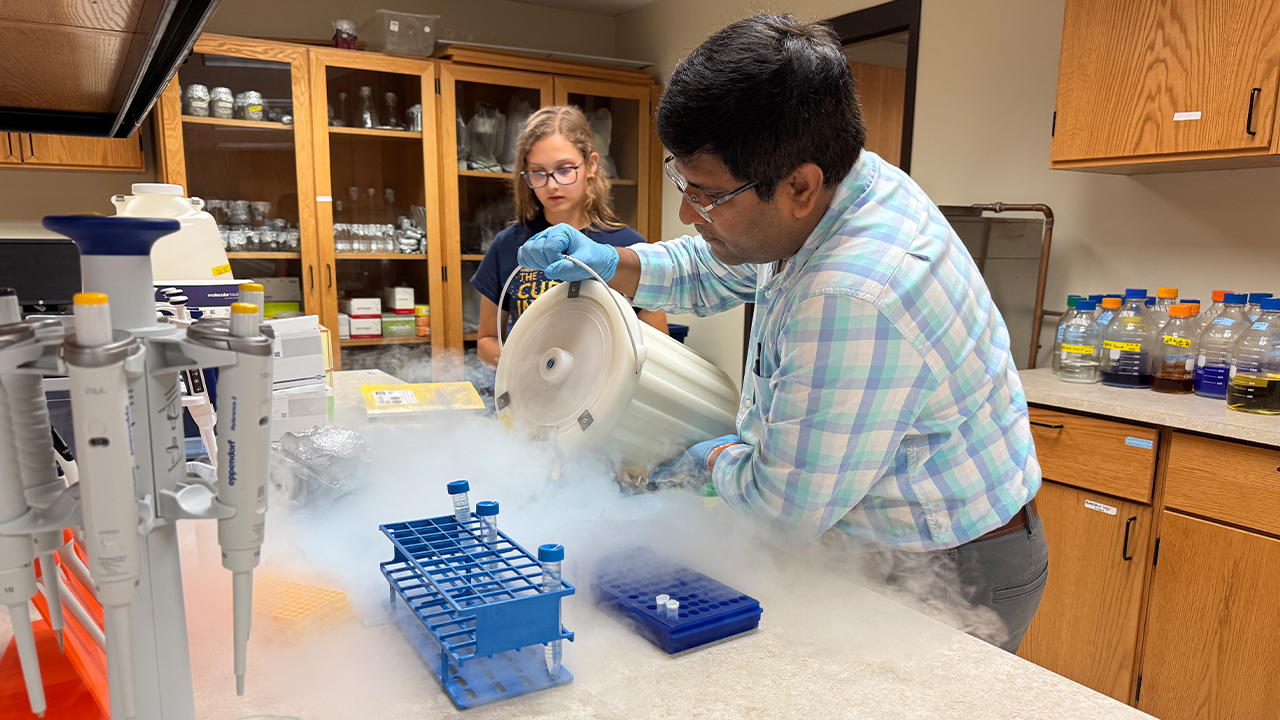
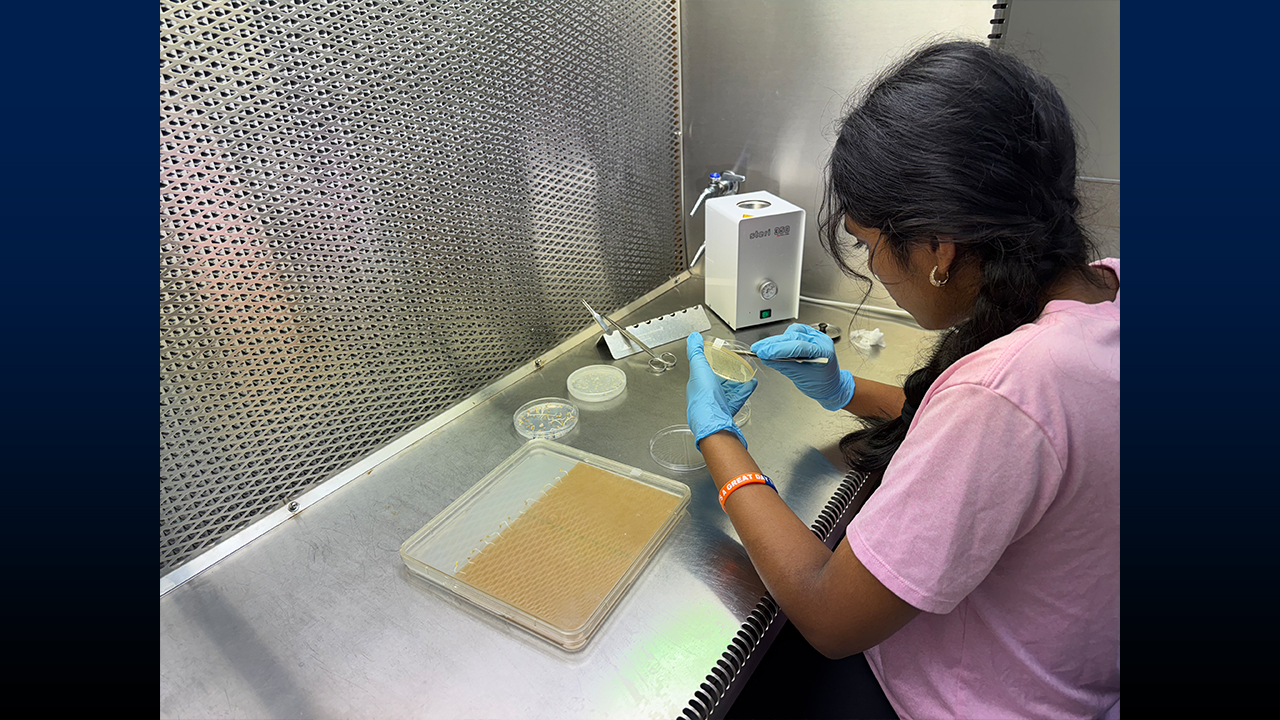
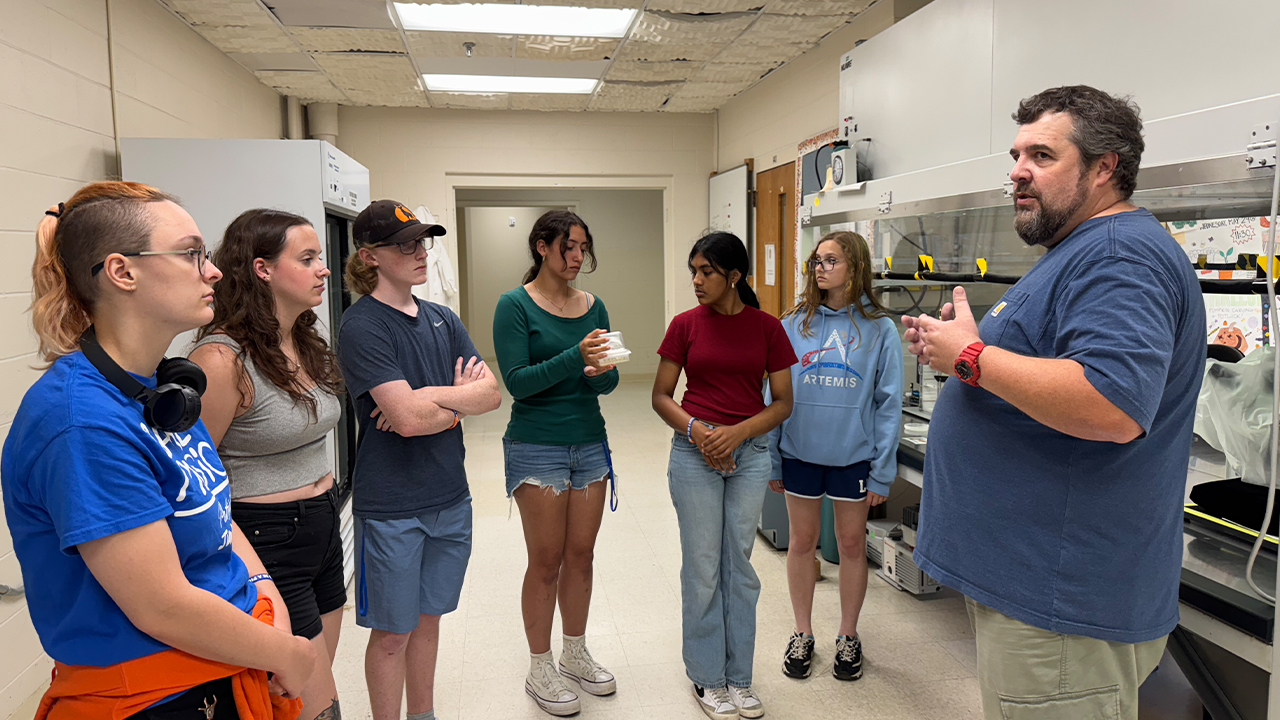
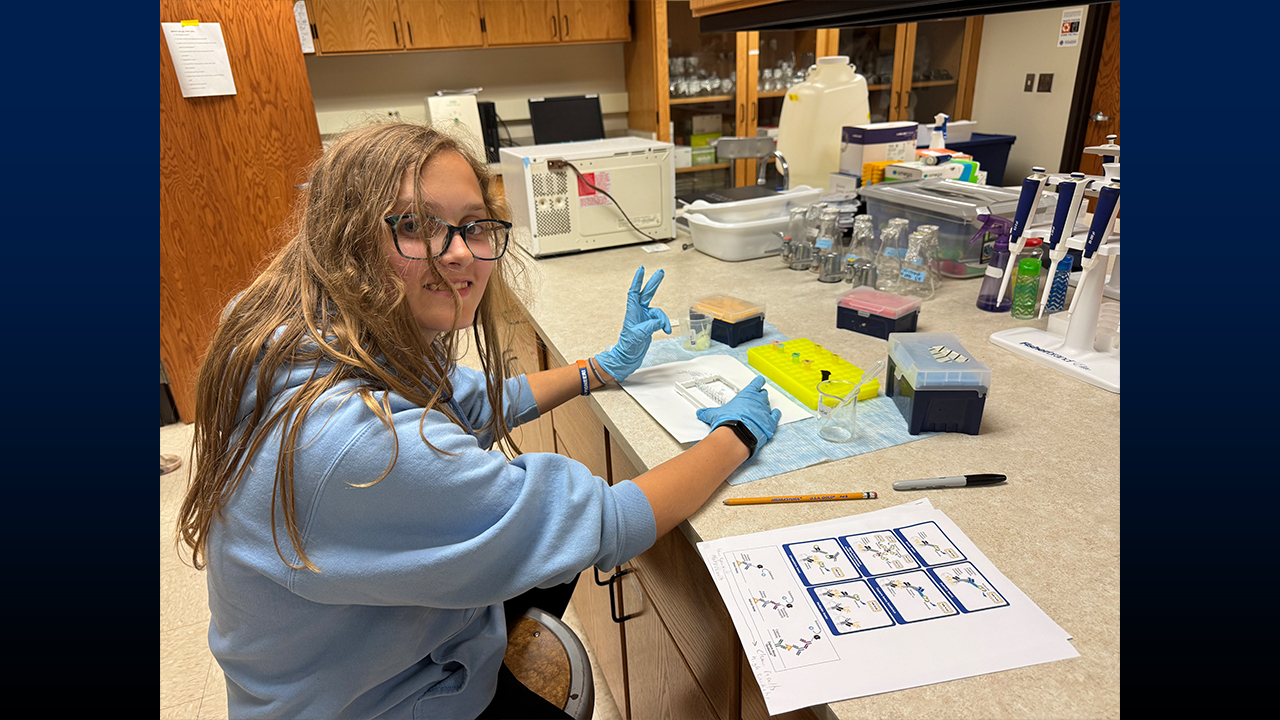
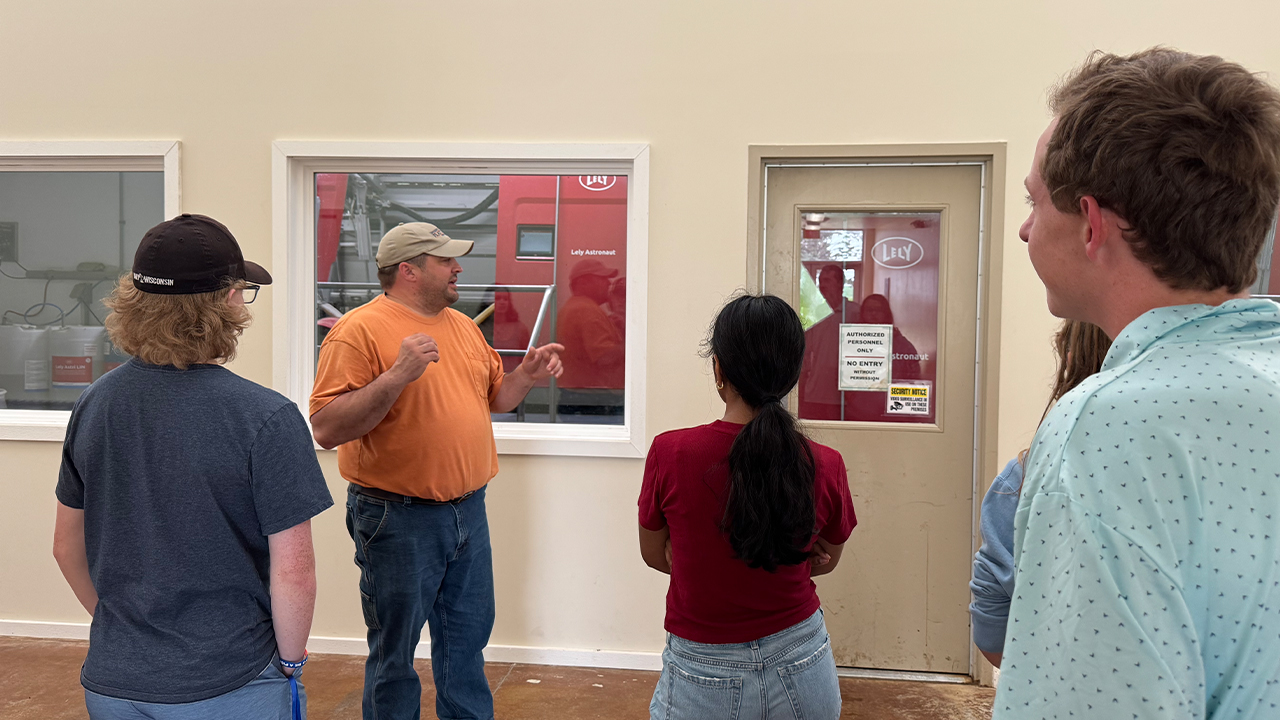
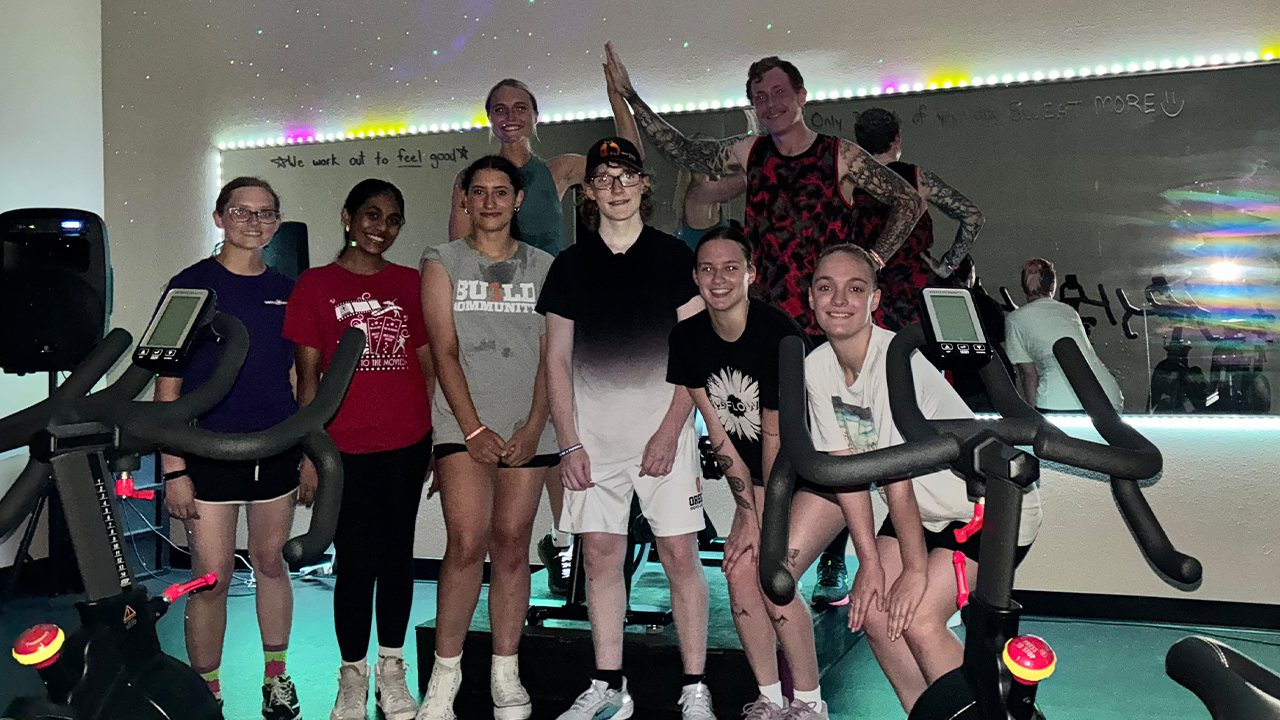
For a group of high school students from across Wisconsin, summer break meant stepping into the shoes of real scientists: micropipettes, reagents, test tubes and all. Last month, the University of Wisconsin-Platteville hosted an immersive Plant Biotechnology Boot Camp, a weeklong residential program designed to ignite curiosity and inspire future careers in science.
Funded by a prestigious National Science Foundation CAREER grant awarded to Dr. Muthu Venkateshwaran, professor of crop physiology and molecular biology in the School of Agriculture, the camp offered hands-on experiences in plant biotechnology, genetics, molecular biology, tissue culture, microbiology and plant pathology. Students didn’t just learn about the science, they did science.
“The goal is to spark lasting interest in plant biotechnology and help students appreciate the value of research and innovation,” said Venkateshwaran, director of the boot camp. “These young scientists got a front-row seat to the powerful role plant science plays in solving global challenges.”
Students from four Wisconsin high schools lived on campus for the duration of the camp, gaining technical skills in the lab while also enjoying a range of extracurriculars, from yoga and spinning classes led by local instructor Alexia Reese to movie nights with popcorn and science-themed films like Food Evolution, which explores the role of GMOs in agriculture.
The camp also took students beyond the classroom, with field trips to two vastly different locations connected by the theme of the week: biotechnology. They visited the Wisconsin Crop Innovation Center in Middleton, home to one of the nation’s leading plant genetic transformation facilities, and UW-Platteville’s Pioneer Farm, where they saw firsthand how biotechnology is applied in real-world agricultural settings.
“The best part was learning new stuff and then immediately using it,” explained one student camper. “Plus, seeing how many different career paths you can take in biotech was super eye-opening.”
Behind the scenes, a dedicated team helped make the camp a success. This included Research Technician Chance Huberty and camp counselors Lillian Dalbey, a biology major, and Paige Atkinson, who is majoring in chemistry and forensic investigation. Venkateshwaran also expressed gratitude to campus partners in Youth Programming, Residence Life, Dining Services, the School of Agriculture and the College of Business, Industry, Life Science and Agriculture for their support.
“Hosting a week-long residential camp for high schoolers is a big responsibility and involves a tremendous level of preparation by all involved,” said Venkateshwaran. “Witnessing their enthusiasm grow throughout the week made it incredibly rewarding. We’re planting seeds for the next generation of scientists.”
That enthusiasm didn’t go unnoticed by the camp counselors, who also found it gratifying to watch students discover their potential in STEM.
"This camp was an amazing opportunity for young students to discover the STEM field through realistic, hands-on learning,” noted Dalbey. “If I had this opportunity when I was in high school, I would have started on my current degree two years sooner."
Perhaps most remarkably, thanks to NSF funding, the entire boot camp was offered completely free to student participants.
“It was a rewarding experience watching the students learn new techniques and light up while doing real experiments,” added Huberty. “The enthusiasm and tenacity of students in learning one technique after another in a short span of time was a testament to their promising future careers!”
As these students return to their classrooms this fall, they bring with them more than just memories—they carry new skills, fresh inspiration and the budding potential to shape the future of agricultural science.